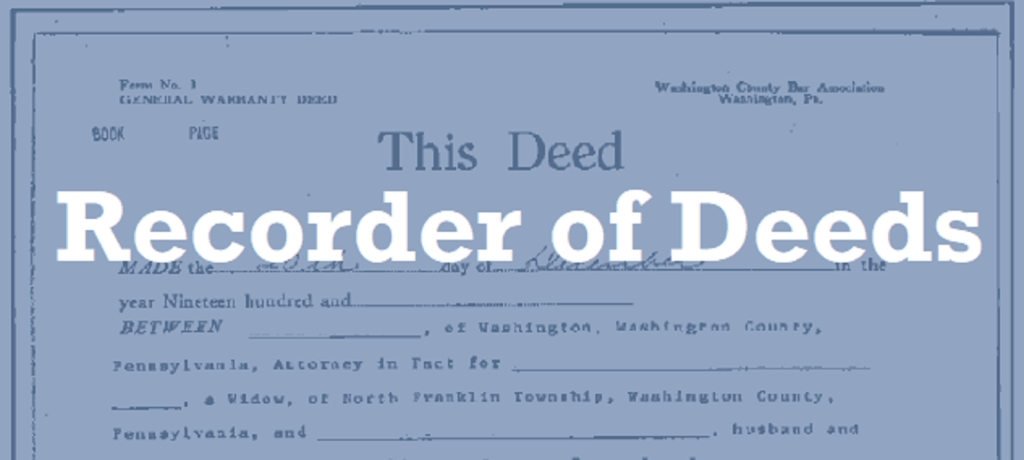
The latest cyberthreat is home equity theft, warns the Home Title Lock company. “Are you already a victim?”
The company warns potential customers to “lock” their deeds, or they could be left homeless and mired in credit problems.
Now, Texas Attorney General Ken Paxton has launched an investigation into Home Title Lock’s advertising.
But Isn’t Deed Theft a Real Risk to Homeowners?
Yes, it is an issue. And its consequences can be terribly costly. That’s why many counties offer automatic alerts to homeowners when anything is recorded against their titles.
If your own county recorder’s office offers automatic title alert services, it’s a good idea to sign up. And help the seniors in your life sign up, too.
If a fraud alert is triggered, it could mean someone has already tampered with a title. But the rightful homeowner’s quick response can limit the activities the culprits can carry out.
Quick reporting of deed fraud to the authorities might even prevent bad actors from getting loans on the real estate, or from transferring ill-gotten titles to other people.
How Can Someone Steal a Deed?
Consider a real example from the Austin, Texas area. A former public servant was charged with faking an elderly homeowner’s signature. The plot? Steal the property before the homeowner died. Then, after the owner died, the culprit started making cash payments on the property taxes. In this case, the auditor’s office noticed something odd — a signature that didn’t match the same person’s signature on the prior deed. And an investigation into home equity theft began.
In other all-too-common scenarios, an outside business (not the homeowner’s mortgage company) persuades a struggling homeowner to sign over the property deed, promising foreclosure relief — and taking money from the target on top of all that.
☛ Learn more about fraud that targets people who are struggling to make their mortgage payments.
No wonder deed fraud was a big issue in the housing market meltdown of 2008-2009. But deed theft didn’t end after the crisis. As reported by ABC News, New York City received 154 reports of deed theft in 2021. Philadelphia reported 53 cases during the same year. Sometimes, notaries have been in on these acts. In one deed fraud conspiracy, a notary was one of the people accused of stealing 11 Philly homes.
Taking Advantage of Homeowners’ Fears? An Investigative News Team Looked at One Anti-Fraud Company
In mid-2022, ABC News took a look at some claims and celebrity spokespeople appearing in Home Title Lock commercials. In the ads, figures such as Newt Gingrich, Rudy Giuliani, and former FBI agents described deed stealing as a trend that’s “exploding” across the country. But for only $199 a year, listeners heard, Home Title Lock customers can protect their deed records, and even get help reclaiming the titles they’ve lost to fraudsters.
While Home Title Lock ads have, for years, called title theft “one of the fastest-growing” kinds of fraud for the FBI, the FBI itself didn’t say this.
The investigative reporters asked if the deed fraud victims in these commercials were real, or actors. It noted that some of the title “experts” in the commercials had vested interests in Home Title Lock.
Referring to what is arguably the most deceptive element of the ads, ABC News pointed out that Home Title Lock didn’t actually present details of real-life fraud victims who recovered their titles due to the company’s support. And the news team wanted to know: Has the company helped its customers recover titles, including by paying for homeowner’s legal fees, as its marketing materials have promised to do?
Now, The State of Texas Is Questioning the Company’s Advertising to Seniors

Six months after ABC News aired its investigative story, Texas Attorney General Ken Paxton’s office sent Home Title Lock a Civil Investigative Demand for documents. Texas asked the company if it could back up its marketing claims — including the “exploding” title theft references. According to a government press release on Jan. 24, 2023, Home Title Lock is under “scrutiny” over questionable claims that might lead people to believe they need to pay the company to “lock” their titles. The Texas A.G.’s office said investigators are exploring the possibility that Home Title Lock’s commercials fell afoul of the Texas Deceptive Trade Practices Act.
The A.G.’s office says the commercials are geared to older homeowners who might be manipulated by scary marketing. In the recent press release, Paxton stated:
I won’t tolerate false, misleading, or deceptive advertisements targeted to any Texas consumers — especially Texas seniors.
Home Title Lock told ABC News that it is cooperating with the Texas investigation.
Meanwhile, In Maryland…
When the ABC News investigation went public, the Attorney General of Maryland published a Consumer Advisory, with the title What Is Home Title Lock Insurance, and Do You Really Need It?
“You may have heard a radio ad lately with a dire warning that your home can be stolen right out from under your nose,” said the Maryland release, “and the solution they are peddling is to buy ‘title lock insurance’.”
The advisory informed Marylanders of several key facts:
- So-called title lock insurance isn’t title insurance.
- So-called title lock insurance is really a deed records monitoring service. If a deed has been conveyed from a customer’s name to another party, the service sends an alert after the fact. It does not “lock” a customer’s title to avert fraudulent activity.
People do not need this service, in short. It doesn’t “lock” their deed records. Nor does it insure their properties against title fraud.
How Can Homeowners Stay Safe From Fraud and Title Theft?
There are things we can do that help keep our home titles and financial data safe from meddlers. We can take the following precautions:
- Check our deed records and/or sign up for activity alerts from the county deed recorder’s office.
- Pay attention to our financial account statements and bills.
- Keep tabs on our credit reports.
- Keep our personal data secure, and guard our Social Security numbers carefully.
- Shred old, unnecessary documents that carry details about our identities and accounts.
Finally, if we have reason to believe our property titles or identities have been exploited, we should report it. In this way, we might all help other people avoid the miserable experience of fraud.
Supporting References
Press Release from Ken Paxton, Attorney General of Texas: Consumer Protection/Scams – Paxton Announces Investigation of Home Title Lock for Potentially Misleading Texas Consumers (Jan. 24, 2023).
Brian E. Frosh, Maryland Attorney General: Consumer Advisory: What Is Home Title Lock Insurance, and Do You Really Need It? (PDF; Jun. 27, 2022).
Mike Levine for Action News 6, WPVI TV Philadelphia (ABC News Internet Ventures): Texas AG Launches Probe of Home Title Lock Ads Tied to Right-Wing Celebrities (Feb. 10, 2023).
Deeds.com: Stealing Houses – A Fast-Growing Crime? (Jul. 6, 2022).
Sarah Asch for the Austin American-Statesman: Former City Code Enforcement Employee Accused of Forging Deed on Austin Home (Jun. 10, 2022).
Mike Levine for ABC News: Questionable Claims Found in Home Title Lock’s Ads – An ABC News Investigation (Jun. 14, 2022).
And as linked.
Photo credits: Washington, PA – official government website; and Ken Paxton by Gage Skidmore.jpg – Wikimedia Commons, licensed as CCA by SA 3.0 Unported.
